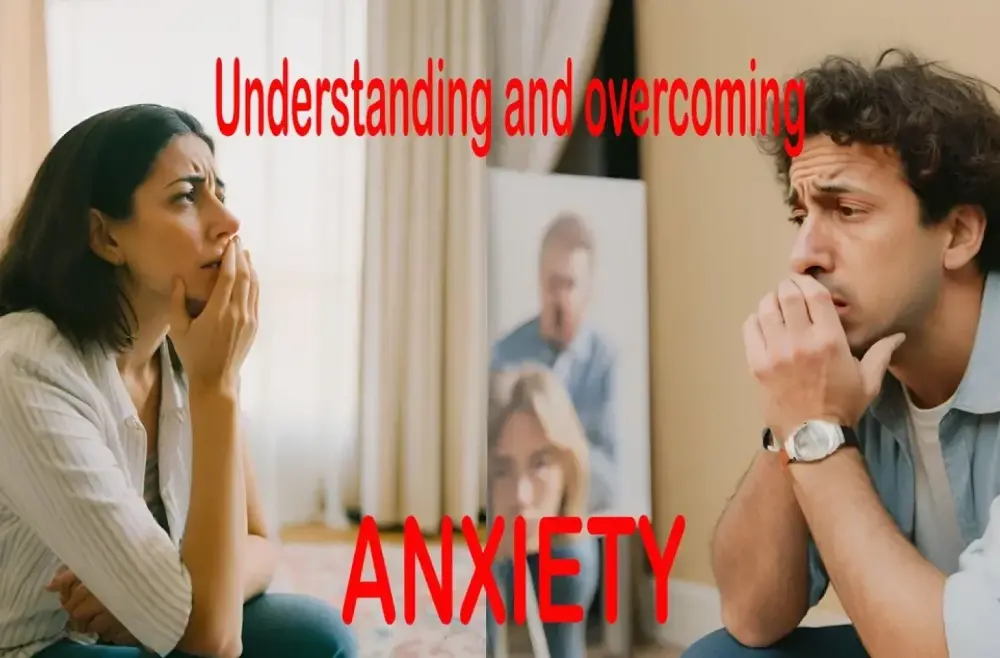
Understanding and overcoming anxiety
- Pablo Munoz Psychotherapist
Categories: Anxiety , Mindfulness
Anxiety is a complex and pervasive emotional experience that affects millions of people worldwide. This emotion has been exacerbated after the experience of the pandemic since 2020. It is more than just a fleeting concern. Anxiety can significantly impact an individual's daily life, well-being, and overall mental health. In this article, we will explore anxiety in-depth, its causes, symptoms, and effective coping strategies.
Anxiety is a natural and adaptive human emotion. It is the body's response to stress and perceived threats. This response triggers a surge of adrenaline, leading to increased alertness and a heightened sense of awareness. Anxiety is beneficial and useful in moderate amounts, motivating us to face challenges and take appropriate action.
However, when anxiety becomes excessive and chronic, it can lead to a range of physical and emotional symptoms, including restlessness, muscle tension, irritability, and excessive worry. Such intense anxiety is often categorized as an anxiety disorder, which can severely disrupt one's daily life.
There are several different types of anxiety disorders, each with its own set of characteristics and symptoms. Some common anxiety disorders are:
- Generalized Anxiety Disorder (GAD): GAD is characterized by excessive and persistent worry about various aspects of life, often with no specific trigger. It can lead to physical symptoms such as restlessness, muscle tension, and difficulty concentrating.
- Panic Disorder: People with panic disorder experience recurrent and unexpected panic attacks. These attacks are sudden and intense episodes of fear and physical symptoms like a rapid heartbeat, shortness of breath, and a feeling of impending doom.
- Social Anxiety Disorder: This disorder involves an extreme fear of social situations and the anticipation of judgment or embarrassment. People with social anxiety may avoid social interactions or endure them with significant distress.
- Specific Phobias: These are intense and irrational fears of specific objects or situations, such as heights, spiders, or flying. When confronted with their phobia, individuals experience overwhelming anxiety.
- Obsessive-Compulsive Disorder (OCD): OCD is characterized by recurrent, intrusive thoughts (obsessions) and repetitive behaviours (compulsions). These rituals are performed to alleviate the anxiety caused by the obsessions.
- Post-Traumatic Stress Disorder (PTSD): PTSD results from exposure to a traumatic event, and it can lead to intrusive memories, flashbacks, and severe anxiety.
Understanding the causes of anxiety is essential for effective management and treatment. Anxiety can have various triggers and risk factors, including: a family history of anxiety disorders, brain chemistry, perfectionism, stressful life events, traumatic experiences, chronic stress, substance abuse, overthinking about the future or chronic repression of desires and/or impulses.
Anxiety can manifest in various ways, and the symptoms may differ from person to person. Common symptoms of anxiety include excessive worry, restlessness, irritability, muscle tension, fatigue, difficulty concentrating, sleep disturbances, avoidance behaviour, or gastrointestinal symptoms.
I want to share with you some effective coping strategies that can help you manage and reduce anxiety symptoms.
First of all, psychotherapy. It is extremely useful to understand the causes of your personal anxiety, to identify what you think, why you think that and what would you like to do or think instead. We learn to survive and deal with life in a certain way and then we repeat that behaviour through our years. Many times, we need to re-understand ourselves and our behaviours. In therapy, you also can learn stress-reduction techniques and relaxation exercises. It is very important to set realistic goals for yourself and your activities. In some cases, family doctors may prescribe medications to be used in conjunction with therapy.
At home, you can engage in activities such as deep breathing, meditation, and progressive muscle relaxation that can help manage anxiety. It is important to adopt a healthy lifestyle to reduce anxiety. Regular exercise, a balanced diet, and sufficient sleep can improve overall well-being. Practicing mindfulness techniques and engaging in relaxation exercises can help individuals stay grounded and reduce anxiety. Also, social support is important. Sharing feelings and experiences with friends and family can provide emotional support and alleviate feelings of isolation.
Finally, self-care is very important where we prioritize activities that bring you joy, pleasure and enjoyment. Many times, we do not value enough the benefits of having fun, pleasure and excitement in our life as a source of energy and strength. It is extremely important to focus on what we want, not on what we do not want. Modern life often pushes us to focus on what we have to do and not on what we want to do.
In my clinical experience, since the beginning of the pandemic, which from my point of view has been a traumatic experience for all of us, the problems dealing with anxiety have grown and have become a concerning issue in our days. If you are experiencing some anxiety symptoms and want to feel better, contact me. We can work together in person or online to find a way for you to enjoy life on your own terms.
Pablo Munoz, M.A. R.P.
.png)